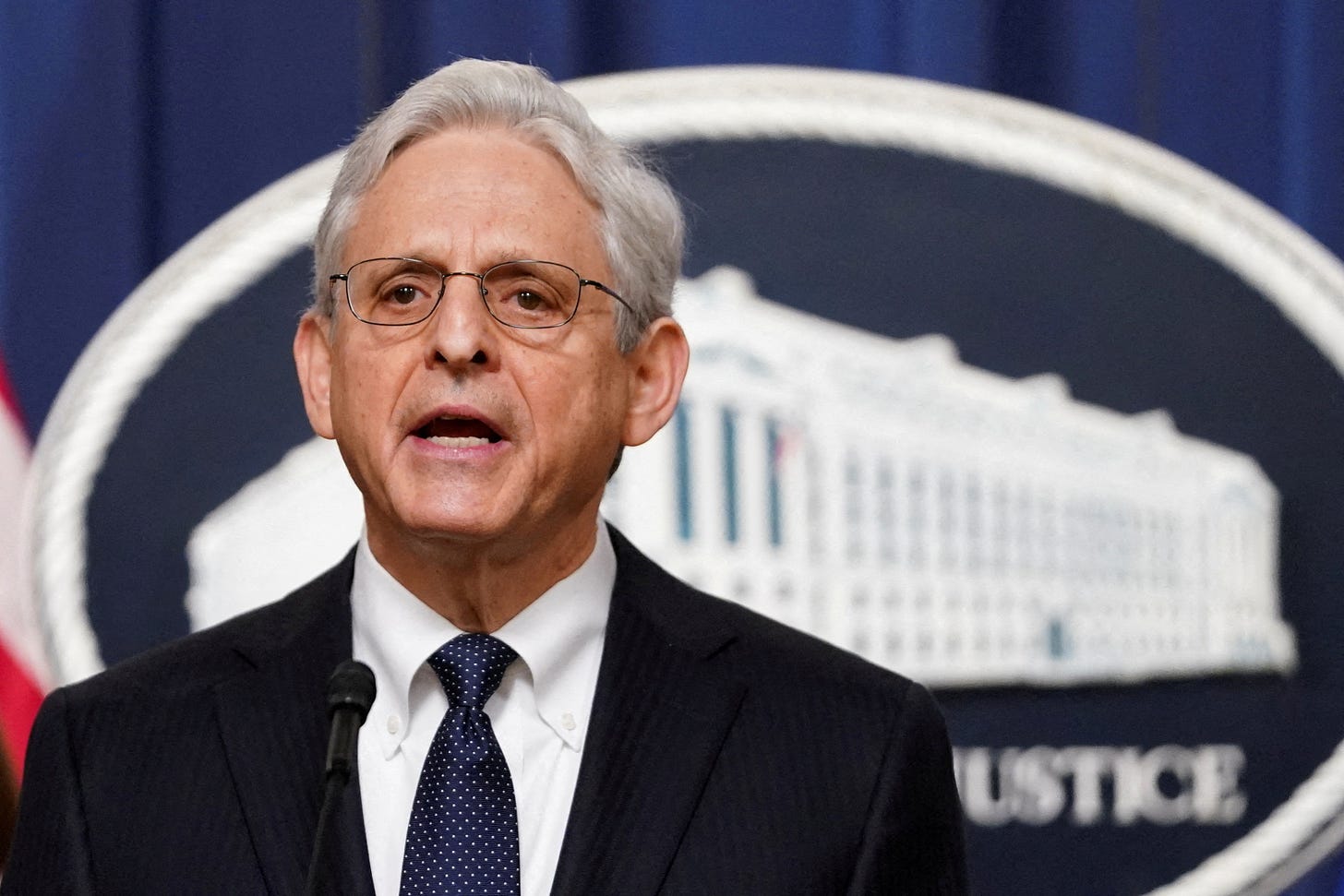Yesterday the House of Representatives voted to find Attorney General Merrick Garland in contempt of Congress. The vote came after Garland refused to comply with subpoenas from House committees, led by Republicans Jim Jordan and James Comer, probing special counsel Robert Hur’s decision not to charge president Biden with any crimes related to his handling of classified materials. The subpoenas demanded that the Justice Department turn over the audio tape of Hur’s interview of the president, even though the committee already has a full transcript of that interview.
Attorney General Merrick Garland (Reuters - Kevin Lamarque)
The White House has asserted executive privilege and claims that House Republicans only want the tape for political purposes. The administration quite reasonably fears that Republicans would release misleading or incomplete excerpts of the recording in an effort to support claims that Biden has cognitive issues. Garland supported the refusal to release the tape, arguing that DOJ has already gone to great lengths to cooperate with the investigation and that Congress is improperly interfering with a criminal investigation and sensitive law enforcement matters.
After the House voted 216-207 to hold him in contempt, Garland released the following statement:
“It is deeply disappointing that this House of Representatives has turned a serious congressional authority into a partisan weapon. Today’s vote disregards the constitutional separation of powers, the Justice Department’s need to protect its investigations, and the substantial amount of information we have provided to the Committees.
I will always stand up for this Department, its employees, and its vital mission to defend our democracy.”
The recent convictions of former Trump advisors Steve Bannon and Peter Navarro for defying subpoenas from the House January 6 Committee were the first successful prosecutions for contempt of Congress in decades. But this contempt citation against Garland won’t go anywhere. The law depends on the Justice Department for enforcement, and administrations of both parties have taken the position that their officials can’t be prosecuted for contempt arising from a political dispute with Congress over executive privilege. Former Attorneys General Bill Barr and Eric Holder both were held in contempt of Congress, and neither was prosecuted by his own Justice Department.
The attempted political use of the contempt of Congress statute raises some interesting issues and has a colorful history that includes, among other characters, Supreme Court Justice Neil Gorsuch’s mom. In light of the Garland news, I thought it was a good time to dust off an oldie but goodie and share it with you: a post I wrote about this issue back in 2015 during the Obama administration. You can find it at the link below:
All of the same issues surrounding the law still exist, including whether Congress should resurrect its inherent contempt power and start locking up recalcitrant witnesses on its own. In the current political environment, that’s a scary prospect.
Please enjoy!
All the best,
Randall





